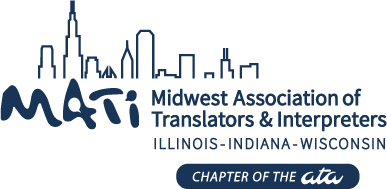The second of our Brown Bag Webinar Series for Medical Interpreters,
Interpreting for Medically Fragile Children will be presented by Tessa Donato, who has a Master's in Education and licensure in Early Childhood Special Education.
Objectives:
*How to interpret more effectively for medically children and their parents
*Interpreters will gain understanding of the transition from the NICU
*Learn the different types of medical and special needs children have after leaving the NICU *Seven domains of child development
*Interpreting for educational assessments
*Basic understanding of the early childhood special education program.
Interpreting for Medically Fragile Children
othing and no one can prepare a parent enough for facing their child’s struggle to live in a Neonatal Intensive Care Unit. Parents depend on medical experts to predict the unknown, to provide some reassurance that their child will be fine. Many children who leave the NICU needing services from Early Childhood Special Education, Public Health, Social Services. Parents are not prepared for the influx of people entering their lives, the overwhelming and revolving paperwork, the medical demands of caring for their fragile child, and the emotional tug-of-war that they face when they discover that they need above and beyond what they know let alone doing this in another language, in another country, in another culture. Parents often feel out of control and deal with the circumstance in a myriad of ways – withdrawing, becoming apathetic, over protective as they try to balance this new beginning in their life. Interpreters have a tremendous role in this effort. As interpreters, we must be highly conscientious of the relationship we are forming with these parents. Trust is essential, and our adhering to our Code of Ethics will help us build a positive long-term partnership with the parent, medical facility and education system. Interpreting for medical fragile cases is the mentally, emotionally, and cognitively arduous since parents experience grief unpredictably in its multiple phases multiple times. Interpreters need to learn how to prepare for the vast terminology that they will be using, and adjusting to constant parent/child needs and emotions that they may encounter while providing interpreting services for these cases.
Each webinar in this series will be 45-55 minutes long, followed by 5-15 minutes of Q&A. Webinars are $15 for MATI Members and $25 for Non-members.
Webinars shall be facilitated using GoToWebinar. Computer and internet access are required. Details on accessing the webinar will be emailed to registrants a few days before the webinar takes place.
Each Webinar is approved for 1 CEU through the ATA. Certificates will be awarded upon completion.
Did you register for this webinar but were unable to attend? For information about accessing a recording, please email: matiemail@gmail.com.
